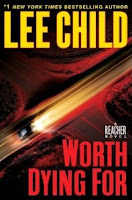I will return to Scotland with another author because it is unfair to review A. D. Scott's A Small Death in the Great Glen as I read half of it and skimmed the rest. But it would also be wrong to pretend I didn't read it and not critique it because it's too hard to write about a book that didn't enthrall me. So here goes.
A Small Death in the Great Glen takes place in the 1950s, soon after World War II, in a small town in the Scottish Highlands. A wee boy is found dead in what at first looks like an accident, but is soon discovered to be a molestation followed by murder. An easy target for the police to pin the crime on is a Polish man who has gone missing from a Russian ship docked nearby and who can be placed in the proximity of the crime. The suspect has been protected by a local Polish man who is engaged to a local Italian girl and by a group of Tinkerers -- all in their own way outsiders to the insular world of the small town. But in the end the crime hits much closer to home.
The real investigators of the book are not the local police but the staff of the town's weekly newspaper. Halfway through the book, these people are well-established. Joanne, the newspaper's typist who is an abused wife and whose children are the last to see the small murdered boy alive. The editor McAllister who figures out the crime. Reporters Don and Rob who play a part in unraveling the mystery. The history is interesting: emigres from war-torn countries who are welcomed into the community but are mistrusted and easy scapegoats. And all the things that are unusual to an American reader: the Tinkerers and their chaotic way of life, and words like bairn and hoodie crow.
So, why didn't I like the book? Or why did I skim half of it? I've been trying to figure that out, but here's my best guess. For one, there is not a central character. Joanne's life is the most explored, but it's McAllister who figures it all out. The book is not really from any one person's point of view. In the same way, the crime isn't really the focus of the book. The Tinkerer's and the local emigre community storyline tie in nicely to the crime plot, but a large portion of the book focuses on Joanne's domestic life, which has nothing to do with the crime except that her children provide an important clue. Then her husband's work brings in another plot, which it would be unfair of me to judge as I skimmed most of that, although from what I could glean it had nothing to do with the main crime.
Finally, the book straddles a fence between cozy and crime that I found discordant. The crime and the background to the crime is gruesome, as is Joanne's battering and some other social mores of the times, such as the treatment of unwed mothers. But it's all told in sort of a cozy style, with flowery language and leisurely scenes and slow-moving plot lines. I sometimes felt trapped inside a wrapped package trying to rip my way out. I started skimming after the tenth reference to hoodie crows still had not resolved anything.
Anyway, I hate giving a bad review to a book which shines a light on interesting history and is populated by mostly likable and believable characters. And readers of this review should take it all with a grain of salt since, as I've mentioned several times, I read half the book and skimmed the rest. But there you have it.
I'm off to the library, hopefully to find another mystery set in a far-flung land.






















